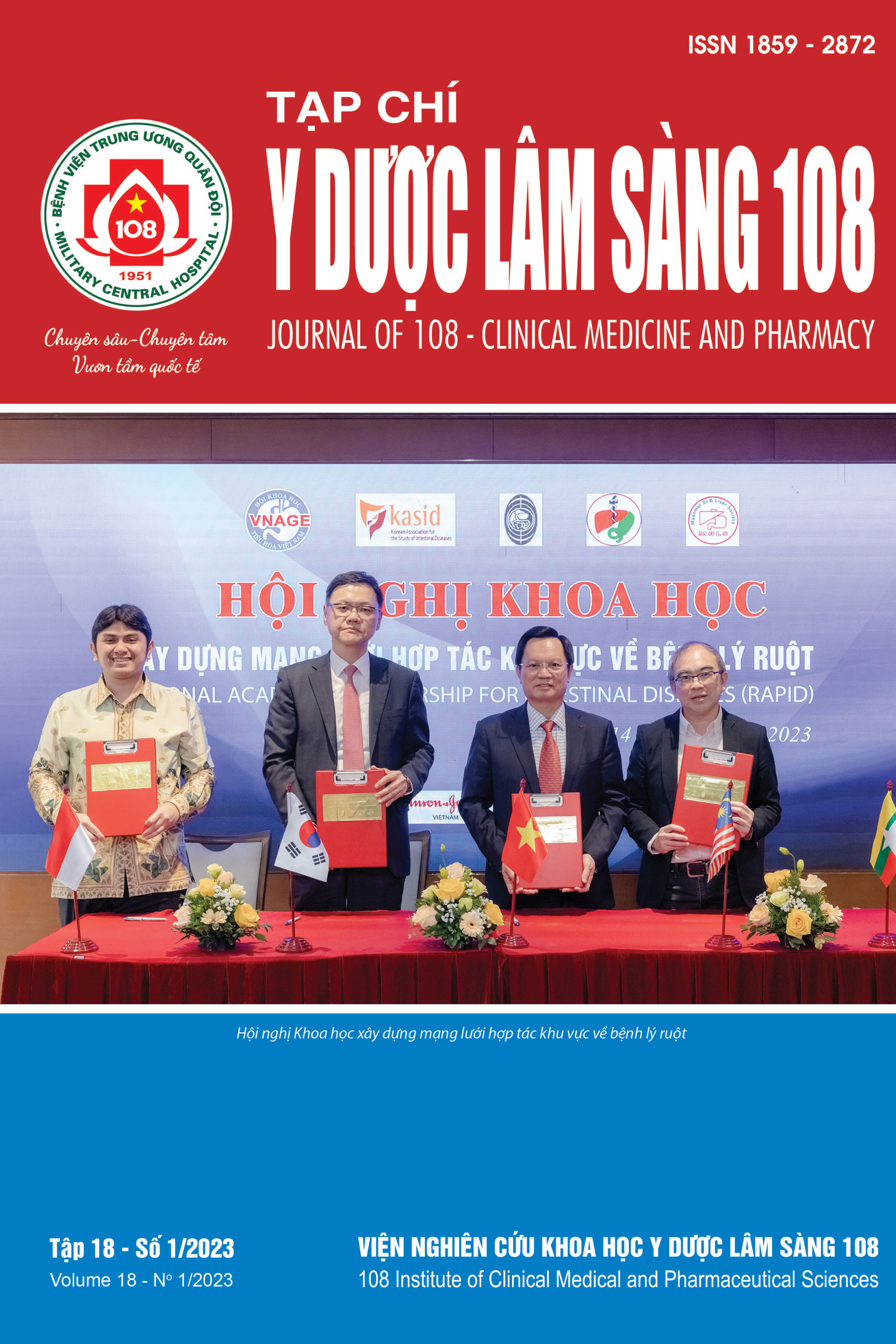Comprehensive geriatric assessment and post-COVID-19 conditions in older outpatients after COVID-19 infection (5/2022-7/2022)
Main Article Content
Keywords
Abstract
Objective: To describe geriatric characteristics and post-COVID-19 conditions among COVID-19 infected older outpatients. Subject and method: From May 2022 to July 2022, this cross-sectional study included 316 patients (aged ≥ 60 years; mean age 66.8 ± 6.3 years; males, 26.6%) attending the post-COVID clinic at the University Medical Center, Ho Chi Minh City. Patients were explained to complete a structured questionnaire through personal interviews to collect demographic characteristics, comorbidities, geriatric issues, and post-COVID-19 conditions. Result: In total, 276/316 patients (87.3%) had any post-COVID-19 conditions, including fatigue (65.5%), attention disorder (10.1%), headache (31.0%), hair loss (4.1%), dyspnea (17.7%), lower limb weakness (20.9%), and decreased physical activity (26.6%). In comprehensive geriatric assessment, the rates of limitations activities of daily living (ADLs) and instrumental ADLs, depression, frailty, poor sleep quality, and fear of falling were 1.9%, 13.6%, 22.2%, 11.4%, 64.2%, and 43.0%, respectively. Hypertenstion, diabetes, and osteoarthritis were the three most frequently comorbidities reported in our study. Conclusion: Our study found substantial rates of post-COVID-19 conditions among older outpatients and fatigue was the most commonly reported symptom.
Article Details
References
2. Zerah L, Baudouin É, Pépin M et al (2021) Clinical Characteristics and Outcomes of 821 Older Patients With SARS-Cov-2 Infection Admitted to Acute Care Geriatric Wards. The journals of gerontology Series A, Biological sciences and medical sciences. 76(3): 4-12. doi: 10.1093/gerona/glaa210.
3. Ellis G, Whitehead MA, O'Neill D, Langhorne P, Robinson D (2011) Comprehensive geriatric assessment for older adults admitted to hospital. Cochrane Database Syst Rev (7):Cd006211. doi: 10.1002/14651858.CD006211.pub2.
4. Williamson EJ, Walker AJ, Bhaskaran K et al (2020) Factors associated with COVID-19-related death using OpenSAFELY. Nature. 584(7821): 430-436. doi: 10.1038/s41586-020-2521-4.
5. Domenico Azzolino MC (2022) Fatigue in the COVID-19 pandemic. The Lancet Healthy Longev. 3(3): 128-129. doi: doi.org/10.1016/S2666-7568(22)00029-0
6. Cabrera Martimbianco AL, Pacheco RL, Bagattini ÂM, Riera R (2021) Frequency, signs and symptoms, and criteria adopted for long COVID-19: A systematic review. International Journal of Clinical Practice. 75(10): 14357. doi:doi.org/10.1111/ijcp.14357
7. Mendelson M, Nel J, Blumberg L, et al (2021) Long-COVID: An evolving problem with an extensive impact. SAMJ: South African Medical Journal 111: 10-12.
8. Lopez-Leon S, Wegman-Ostrosky T, Perelman C, et al (2021) More than 50 long-term effects of COVID-19: A systematic review and meta-analysis. Sci Rep. 11(1): 16144. doi: 10.1038/s41598-021-95565-8.
9. Carfì A, Bernabei R, Landi F (2020) Persistent symptoms in patients after acute COVID-19. Jama 324(6): 603-605. doi:10.1001/jama.2020.12603.
10. Barer D (2011) Review: Inpatient comprehensive geriatric assessment improves the likelihood of living at home at 12 months. Annals of Internal Medicine. 155(12): 6-2. doi:10.7326/0003-4819-155-12-201112200-02002.
 ISSN: 1859 - 2872
ISSN: 1859 - 2872
